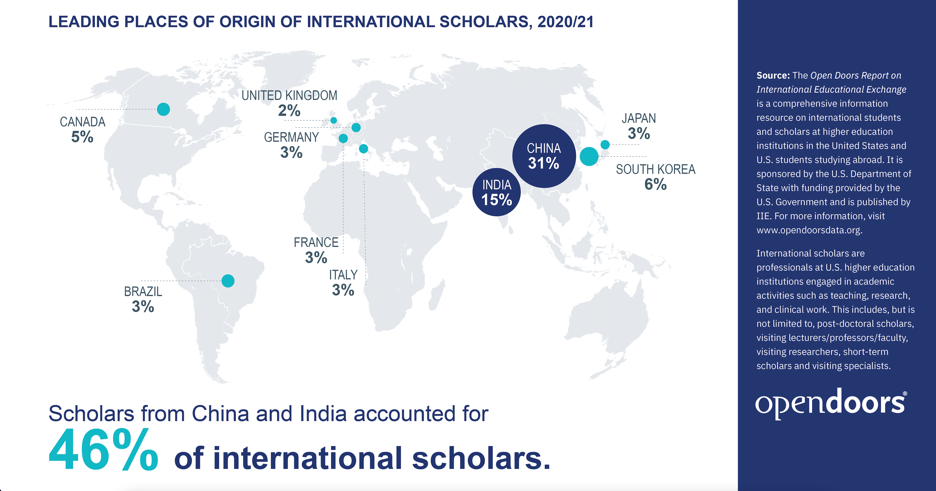Imagine you are the admissions officer for a top university. You have one place left, but two applications on your desk: One is a straight-A student and decorated athlete who captained their debate club to the national championships; The other is B-student with no leadership experience from a top boarding school. Who would you prefer? Most of us would choose the first student. Because ‘’The student is the star; not the school’’.
When asked, even the best boarding schools will confess that university placement is not determined solely by a student’s school. It’s more about what they do there.
But there are some things boarding schools won’t tell you. And as countries with many boarding schools, like America, desperately try to recoup huge losses from the pandemic, they will say nearly anything to recover applications.
Particularly, boarding schools are targeting high-potential students enrolled at Vietnam’s top international schools – like SSIS (Saigon South Internation School) in the South and UNIS (United Nations International School) in the North. If the boarding schools are successful at poaching these excellent students, this is great for their schools. But is it great for the students?
Remember, the student is the star; not the school – even though boarding schools might want you to think the opposite. So, to help dispel the Hollywood mirage, here are five things you should know about boarding schools.

1. The University Placement Bottleneck
What many boarding schools don’t tell you is that top universities want students from a diversity of schools. This means universities limit how many students they accept from any one school. So, if a student applies to one specific university alongside many other students from the same feeder school – which happens at boarding schools – the students will be competing against each other for a set number of places. This creates a bottleneck.

Many of these competing students are local students with legacy preference (their family are alumni at their chosen university), which means they will be chosen first. Therefore, your child will likely have a better chance if they apply from a school with less internal competition.
For example, students from SSIS or UNIS don’t all compete for the same university placements. Their students enroll at over a hundred of the world’s best universities who all love to admit students from Vietnam’s best international schools because they fulfill the requirements to diversify their student body.
So don’t assume that your child will get into a certain university because a boarding school is a feeder school. This can actually be a huge disadvantage.
2. Poor Cultural Immersion
While parents may want their kids to immerse in a foreign culture, students who are far from home tend to gravitate toward others of similar backgrounds. This means that ethnic cliques are common in boarding schools. Furthermore, the local kids tend to be day students, whereas the international kids are more likely to be boarding students. This clear social division between day and boarding students increases the divide between international and local students.
Add to this the fact that in the US “fifty-six percent of all F-1 visa holders who intend to earn a diploma are from China” (source), and it starts to become clear that a foreign boarding school does not equal a foreign cultural experience.

The US is not alone; students from China make up over 30% of international enrollments in the UK, Australia, and Canada as well (source). So the promise of cultural immersion may not be entirely honest. This is accentuated by the fact that many boarding schools are isolated environments, which students rarely venture beyond, meaning further separation from the authentic foreign culture.
For these reasons, your child is likely to experience more authentic cultural immersion at a summer camp in a foreign country than they will at a boarding school.
3. Social & Emotional Concerns
Attachment – the crucial establishment of trust and security through a primary carer – is the basis of the modern psychology of child development. By sending your child away for 38 out of 52 weeks of the year, you are putting considerable strain on their healthy family attachments. This can result in a pathology known as Boarding School Syndrome (source), which often surfaces later in life.

A recent research paper from the Australian Journal of Education concluded that boarding school staff are not equipped to fulfill the role of parent: “… staff performing a parenting role in boarding schools do not have access to adequate skills-based training to support the developmental outcomes of the young people for whom boarding schools are a home away from home.”
Boarding school can never be a substitute for healthy family attachments.
4. Economic Disadvantage
While many families apply to US boarding schools hoping it will make their child eligible for state tuition at their desired university, this is a falsehood. Only holders of a US passport are eligible for state tuition. Attending boarding school does not qualify your child for these economic advantages.
Compounding this, as the US dollar continues to inflate, thereby increasing the relative cost of tuition each year, the US boarding school system is becoming a more and more costly track to be stuck on.
5. Drugs & Alcohol
Boarding schools continue to deny that they have higher risks of drug and alcohol use. However, a recent research study published in the Journal of Education and Learning uncovered the truth. And it is an ugly truth. You can read it in full, but here are two findings from the study:
“A divisive contrast in drug use between students who live on campus (boarding students) and students who live at home (day students) indicates that adolescents living on campus use drugs more frequently.”

“No day students who used drugs were able to use both licit and illicit drugs as heavily as boarding students of the same grade, suggesting that boarding students were less inhibited by social controls like parents.”
Boarding schools do recognize this problem and take action against it. But, as the study shows, the problem is far from solved.
As a parent, your goal is to make the most informed decision about where your child can shine most brightly. While boarding schools continue to aggressively promote their schools, the best schools continue to aggressively promote their students because they know that the student is the star, not the school.
References:
- Boarding and Day School Students: A Large-Scale Multilevel Investigation of Academic Outcomes Among Students and Classrooms – published by ‘Frontiers in Psychology’, 2021 (link).
- The Open Doors 2021 Report on International Educational Exchange – published by the IIE and sponsored by The US Department of State, 2021 (link).
- What Boards Need to Know About International Student Enrolment – published by ‘The National Association of Independent Schools,’ 2019 (link).
- Adolescent Drug Use in Connecticut Private High Schools: Zero Tolerance, Contextual Peer Influence, and Deterrence Effectiveness – published by ‘The Journal of Education and Learning’, 2020 (link).
- Boarding School Syndrome – published by ‘The British Journal of Psychotherapy’, 2012 (link).
- Home Away From Home? Boarding in Australian Schools – published by ‘The Australian Journal of Education’, 2013 (link).








